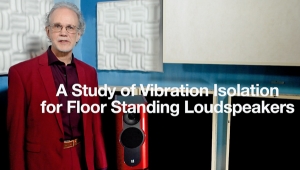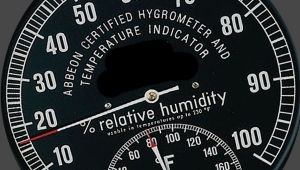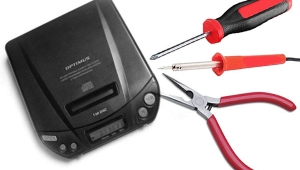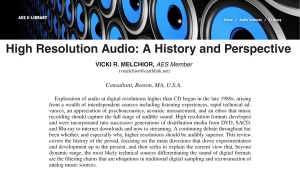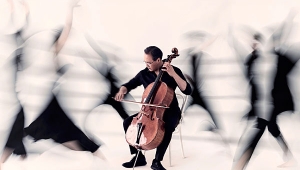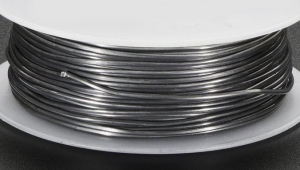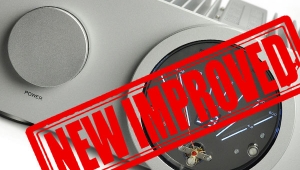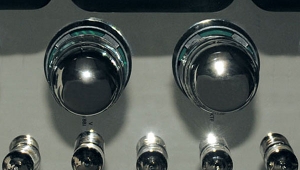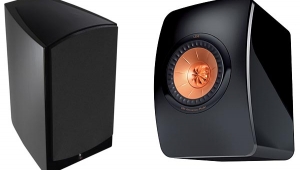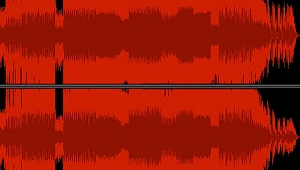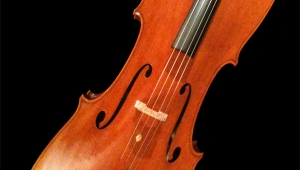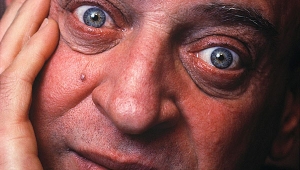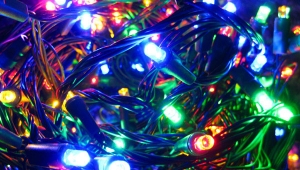| Columns Retired Columns & Blogs |
Scientists vs Audiophiles 1999 Page 2
According to Jim, as sure as F=MA, there are no genuine golden-ear audiophiles. But for that belief to be grounded in science, he'd have to show that different metals and geometries in connectors (for example) cannot—on pain of logical inconsistency, or mathematical fallacy—create even slight differences further down the signal chain that might be audible to some individuals. Whatever equations Jim might use to prove his case, they'd have to include variables for currents, impedances, etc., as well as variables representing ear drums, auditory canals, and nerves in all their variations within the human population. What Jim would need, in other words, is unified science—a consistent set of formulas reaching from electronics to psychoacoustics to demographics. But none exists.
Would Jim agree? He'd first say that I'm making things way too complicated, then repeat the story that got the most laughs in his seminar: "I asked my teacher once whether a $5000 pair of speaker cables sounds better than a $50 pair. He thought for a minute and said, 'You know, if someone paid $5000 for a pair of speaker cables, I bet they would sound better!' " Aren't we audiophiles just a crazy bunch of fellers?
Take your pick: You can stand behind complicated truths, as I do, or you can cling to simple mistakes. Those who so feverishly insist that science tells us everything about audio treat science as a finished product, a universal gadget that solves any problem, settles any dispute. If that's so, just what do real scientists do all day? They don't sit around picking lint off their labcoats. Any good scientist will tell you that there's much more in the world that we do not understand than we do understand. Ironically, if science-worshipers like Jim were themselves more scientific and empirical about science itself, they'd realize that it does not give us total knowledge, let alone prove that every audiophile is an idiot. Jim knew his pro audio, I admit. But when it came to science, audiophiles, and golden ears, he wasn't the sharpest tool in the shed.
As the seminar wore on, the plot thickened. All this audiophile-bashing began to look like a symptom of some deeper complex. Jim reminded me of my old classmate Barbara. When I was 12, she used to tease and insult me mercilessly. One day I complained about it. My Grandmother said, "Well, she's sweet on you, that's all." Huh? I didn't understand these things back then. But now I do. Like Barbara, Jim seemed a little too interested in the things he so eagerly criticized.
Sometimes, Jim sounded like a closet audiophile. While explaining equalizers, for instance, he warned us to never overuse them: "The more you equalize a system, the worse-sounding it gets." Hmmm. And what about this: "Use the heaviest cables you can for your speakers. And keep them as short as possible. Oh, and don't coil lengths of unused cable."
Sound familiar?
"What about tubes?" someone asked. "They're in vogue these days. Do you recommend using them?"
Not for sound reinforcement, Jim explained, citing the usual complaints about heat and durability. "But they have their own sound. It depends on what you like. At some point it becomes art, not science."
Art, not science? Jim's inner audiophile was showing more and more. He even pledged allegiance to the prime directive of subjective audio: when you've got funky dispersion, or a persistent source of feedback or hum, he emphasized, "your ear-brain system is the best tool you've got for diagnosing system problems."
That settled it. The same guy who earlier had dismissed the idea that some people, using nothing but their "ear-brain system," can hear differences between cables and connectors, had turned around to insist that one's "ear-brain system" is "the best tool" in all of audio. I scribbled "Sibyl!!!" on my notepad. Jim has MAPD (Multiple Audio-Personality Disorder).
Jim's pro-audio personality isn't even aware that his audiophile personality exists. But that's not surprising. Think about how a pro-audio engineer earns his keep: He drives a truck full of equipment to a venue and sets up a sound system for a meeting or a performance. Or he runs a recording studio in which nervous and eager musicians pin all their hopes (and money) on making a killer demo tape. It's his job to make sure that the client is happy. If a grunge band wants a different guitar sound, or if the CEO's voice is suddenly drenched in feedback as he begins his report to the shareholders, Jim is the guy who's got to fix things—fast. His job and reputation are on the line. He's got to have control.
For us, audio is recreation, an escape. We can afford to enjoy its mysterious and unpredictable aspects. A great listening session is like catching a great, big fish—"Man, you should have heard that soundstage. It was this big!" No wonder Heisenberg's Uncertainty Principle bounces around in audiophile circles (even if few know what it really means). We enjoy the uncertainties of why systems can sound inexplicably great very late at night, or how a $2 tweak can make a $1000 difference. Half the fun is the spontaneity and surprise.
But for Jim and other pro audio engineers, surprise and unpredictability threaten their sense or illusion of control. Imagine if the band's guitarist had golden ears and asked Jim to use cables or connectors with more "presence"; or if the CEO complained that, despite all of the adjustments Jim could make, his voice didn't sound "palpable." Jim wouldn't be able to rely on formulas or scientific principles to solve problems like these. That's why he thinks (or hopes) that they don't really exist, that audiophile-speak is just gibberish, that the only real problems a sound engineer will encounter are covered by science. For Jim, science hovers in the background like a guardian angel, whispering, "Don't worry about a thing—it's all in the textbooks."
- Log in or register to post comments
